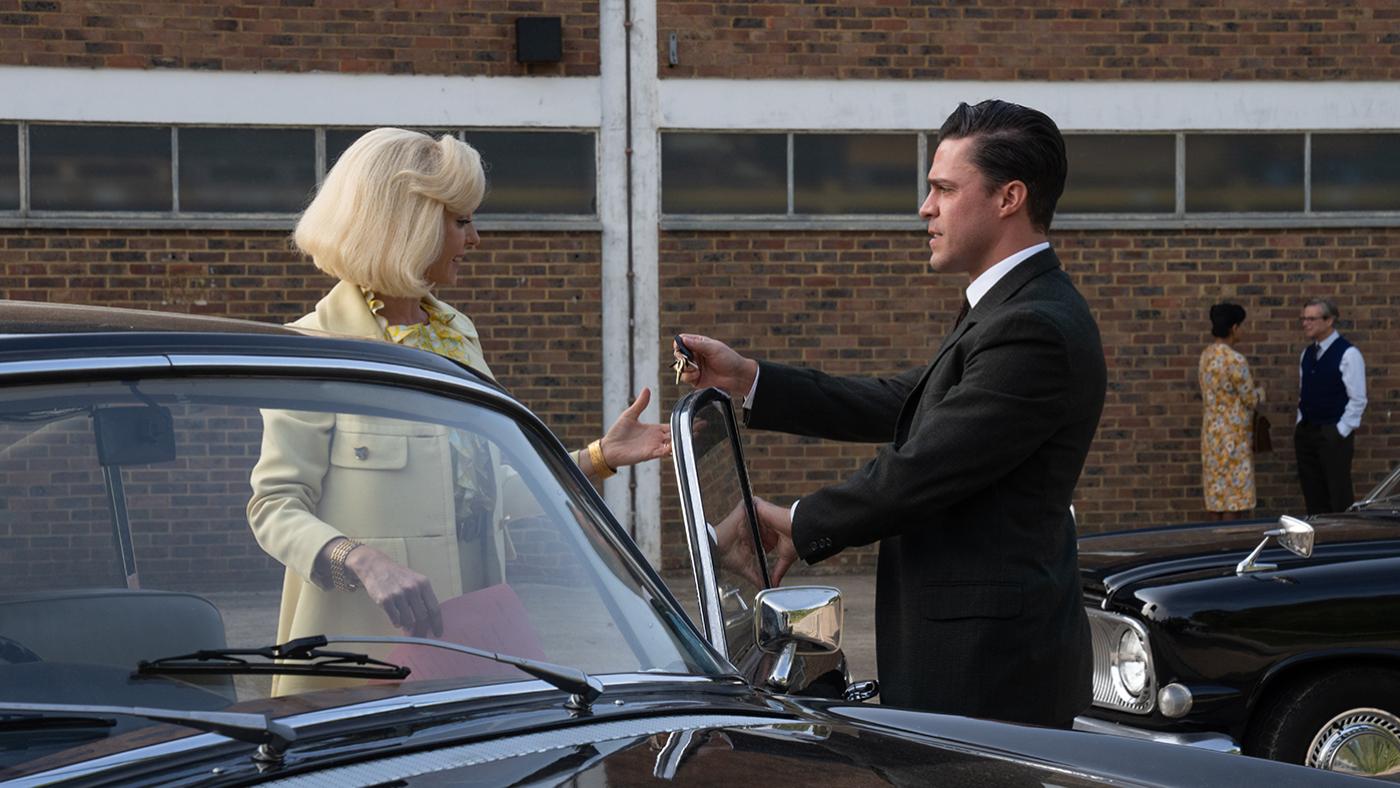'Marie Antoinette' Recap: Episode 6
Daniel Hautzinger
April 23, 2023

Marie Antoinette airs Sundays at 9:00 pm on WTTW and is available to stream. WTTW Passport members can stream the whole show. Recap the previous and following episodes.
Keep up with your favorite dramas and mysteries by signing up for our newsletter, Dramalogue.
The Austrian ambassador Mercy’s appeal to a higher power for help in preventing a divorce between Marie Antoinette and Louis has brought not a god, nor even the Austrian empress, but Marie Antoinette’s brother Joseph. An emperor himself who co-rules with his mother, he arrives at Versailles alone, on horseback, drenched by the rain. He likes to travel incognito.
His arrival surprises everyone and shakes everything up. He charms Victoire and Adelaide, impresses Louis while hunting, is shunned by Provence and Josephine without regret, and runs roughshod over Mercy and Maurepas. He’s determined to fix his sister’s marriage, but allows Mercy and Maurepas to begin negotiating the terms of the divorce, since even the pope has agreed to an annulment, given that the marriage has been childless for seven years.
While those negotiations begin, Joseph sets about managing his own sort of negotiation: between Antoinette and Louis, in a sunlit pavilion. The conversation doesn’t go well: when Joseph speaks of Antoinette’s duty towards her husband to produce an heir regardless of her own interests or desires, she rants against sexist notions of marriage and insults Louis.
Josephine is finding it equally difficult to produce an heir with Provence after her faked miscarriage. She and her husband hate each other, but she’s willing to do what it takes to secure power. He isn’t, insulting and assaulting her when she tries to entice him into bed—but she’s the stronger of the pair, and ends up with her heeled foot pressing on his throat, demanding an apology. When she later passes Antoinette, whom she dislikes, in the hallway, she tells her that, “It’s them, not us.” Not that their shared position inspires any sympathy.
Provence has tried to exercise his pathetic power in other ways, banishing Saint-Georges from Versailles after shying away from a duel with the violinist. Antoinette and Joseph must therefore travel to Paris to hear the composer’s new opera, which Joseph compares favorably to the work of Mozart. He’s also impressed by how much Paris adores his sister.
But Antoinette is convinced there is nothing she can do to forestall the divorce and continue to enjoy that adoration, so she indulges in a night of debauchery with her friends, including Chartres—the only member of the French royal family she thinks likes her—and her new favorite, Yolande—who is being paid by her relative Maurepas to inform on Antoinette, unbeknownst to the queen.
Antoinette is still gambling the next morning when Joseph hauls her away from the party to join another scheduled therapy session with Louis. But the king has left by the time Joseph has fetched Antoinette.
The stakes become more clear to Antoinette when she learns that Maurepas would force her to stay in France after the divorce—she’s a security risk, having learned too many state secrets. The ambassadors, Louis, and Joseph visit the convent where Antoinette will live out the rest of her life under supervision.
Progress is finally made at the next marriage session, when Antoinette admits that it hurts when Louis tries to have sex with her. Joseph says that’s normal, and suggests to Louis that he learn from an experienced woman how to make things more pleasant. Louis is appalled: he respects the sanctity of his marriage and his love.
He requests “instructional” materials from Beaumarchais, and once again demands that the spymaster figure out who’s behind the slanderous notes about Antoinette that have blanketed court, even if there haven’t been any recently.
Antoinette appears and asks if Louis meant in their therapy session that he loves her, and he says yes. They both say they could have behaved better, and half-apologize. She notices the “instructional” drawings, and tells her husband that he should take Joseph’s suggestion and learn from a prostitute—it is their only chance.
Joseph also has advice for Antoinette: drop her relationship with the scheming Yolande, and rekindle her friendship with Lamballe instead. Antoinette apologizes to Lamballe, who decides to arrange a concert at Versailles featuring Antoinette as a singer, to show the royal family her defiance.
Joseph writes to his mother the empress and tells her there will be no divorce.
He continues to charm Victoire and Adelaide, to the point that they publicly chastise Provence. Saint-Georges has returned to Versailles to play at Antoinette’s concert, but the sisters order Provence to sit down and watch when he stands up and calls the violinist’s presence an insult. Louis smiles while Antoinette sings—and when Provence storms into his office later to complain about Saint-Georges, the king happily tells his brother that he and his wife invited the violinist back, despite Provence’s orders.
Louis has embarked on “lessons” with a prostitute, but the gossipy notes about Antoinette have also reappeared: Joseph receives one accusing her of having female lovers. He hands it over to Louis. He also explains that he wants to invade Bavaria, on which he has a claim via his late second wife that is not being respected by Prussia. He hopes for Louis’s military support.
Louis reads the note and decides not to sign the divorce contract offered him by Maurepas. Instead, he goes to the pavilion for another counselling session with his wife and Joseph. But Joseph is not there. Louis kisses Antoinette, and things finally progress easily and pleasantly.
Joseph rides back to Austria and tells his mother the good news. Saint-Georges is made master of the queen’s music. And Antoinette perches happily in Louis’ lap in front of the whole court as Saint-Georges plays a concert.







